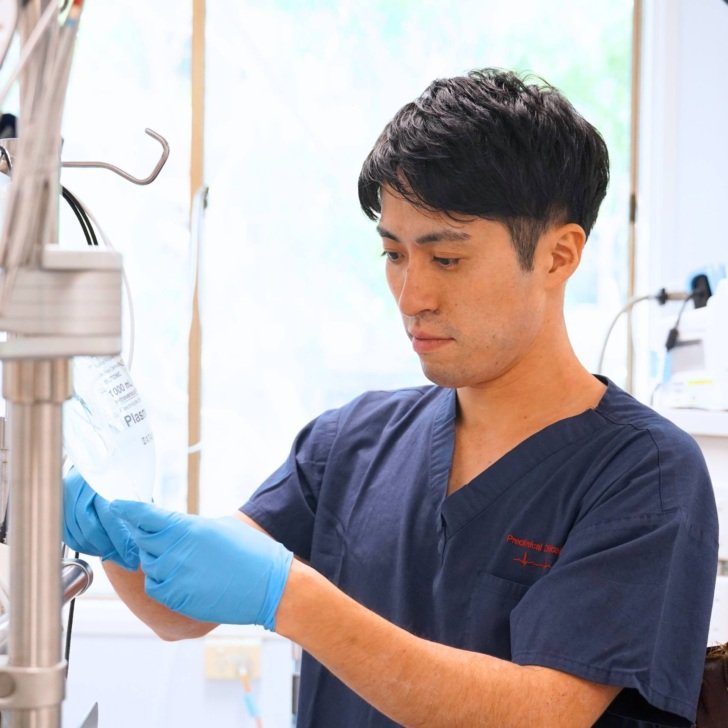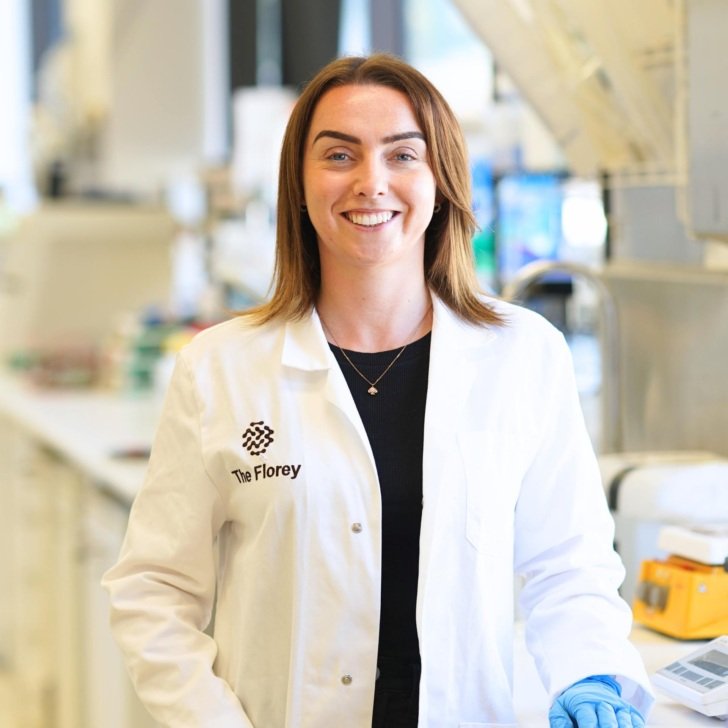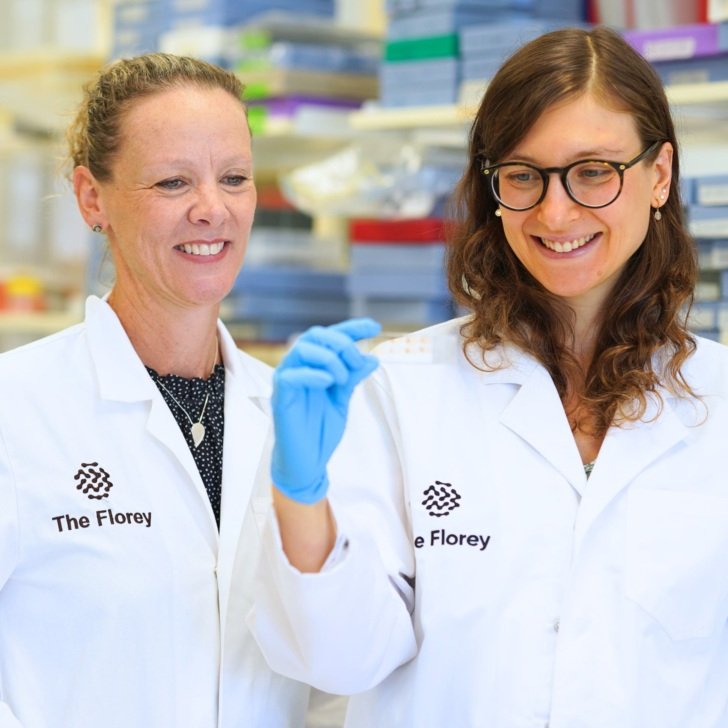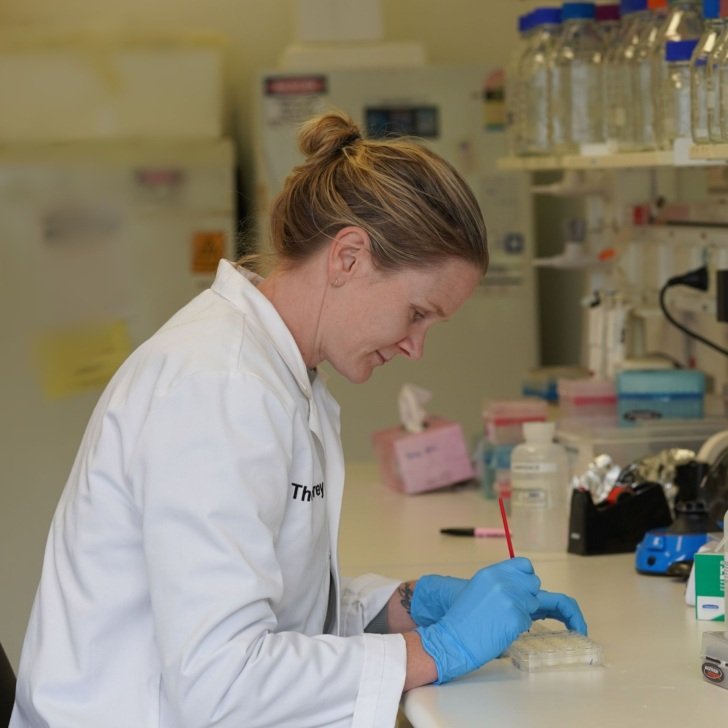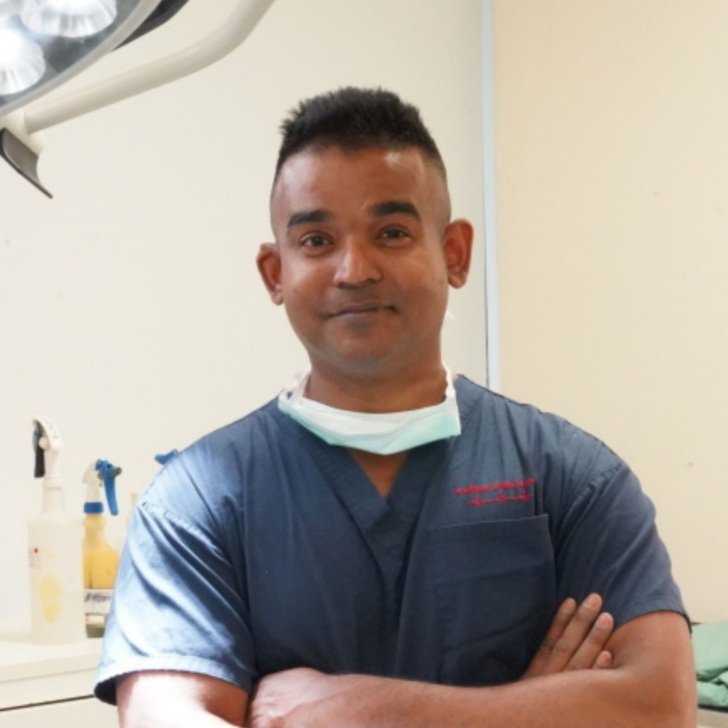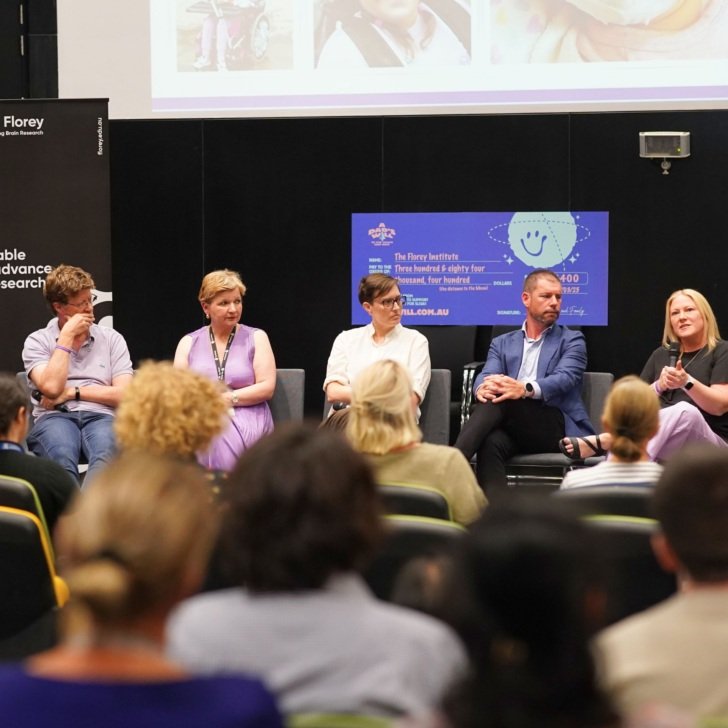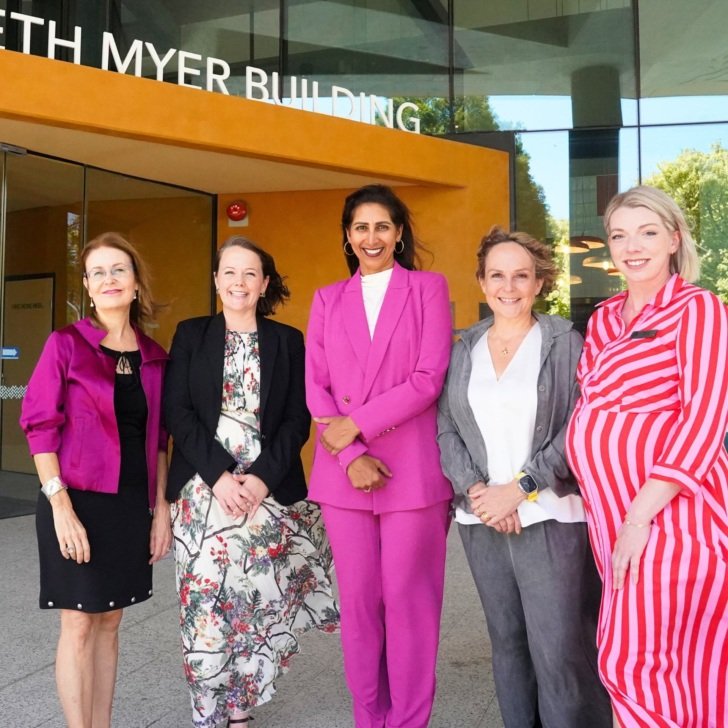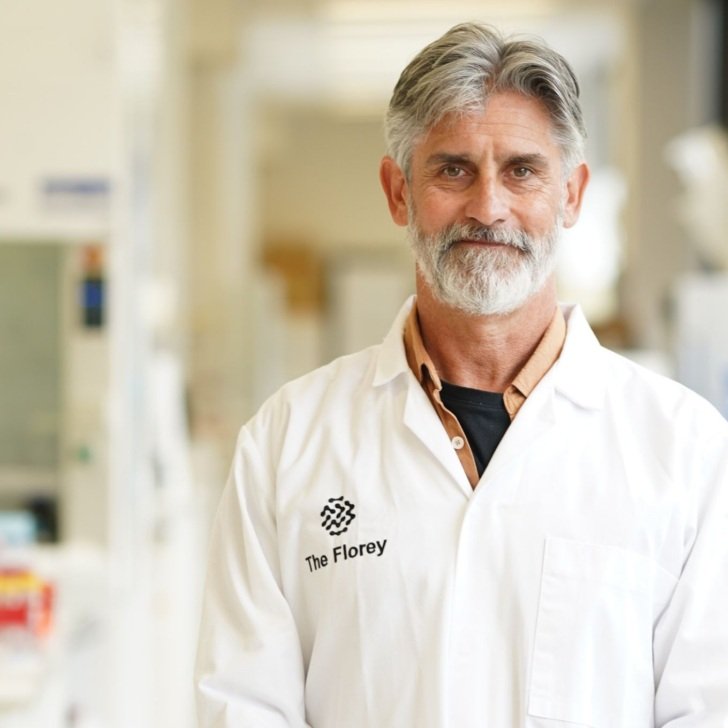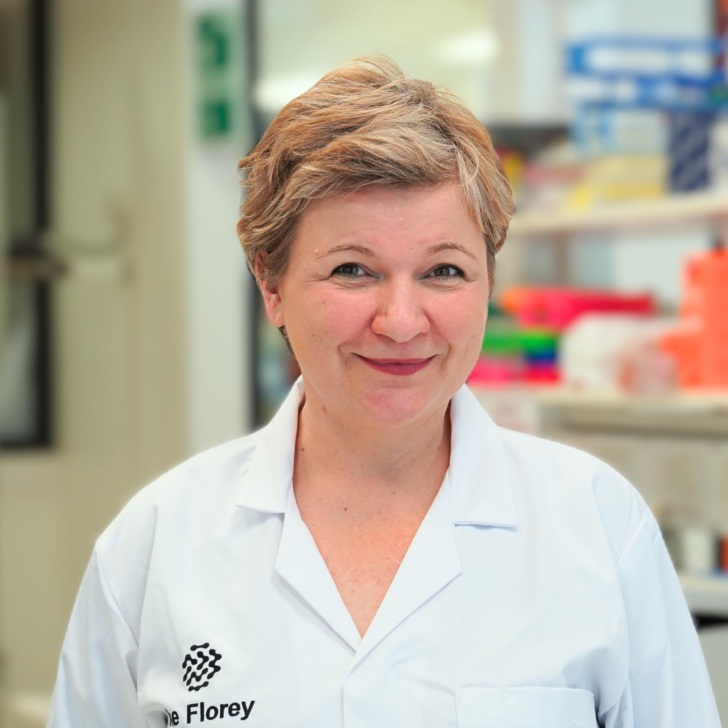Researchers at The Florey have received a combined $13.8 million to support research that seeks to improve understanding and find treatments for a range of brain and mental health conditions.
Health Minister Mark Butler announced the funding as part of the National Health and Medical Research Council’s Investigator Grants and Ideas Grants.
Florey Director Trevor Kilpatrick said Florey researchers are solving some of the biggest challenges in neuroscience and mental health.
“The Florey is dedicated to improving lives and health outcomes in our community. The diversity of our research shows how complex our brains are – from MND to Alzheimer’s disease and promoting brain repair to enhancing decision-making in mental health conditions. There are big questions to solve in brain research, but I am pleased that these projects are now able to provide some answers,” said Professor Kilpatrick.
“We thank the Australian government and people for supporting this important work.”
World-first investigation to prevent motor neuron disease from killing motor neurons
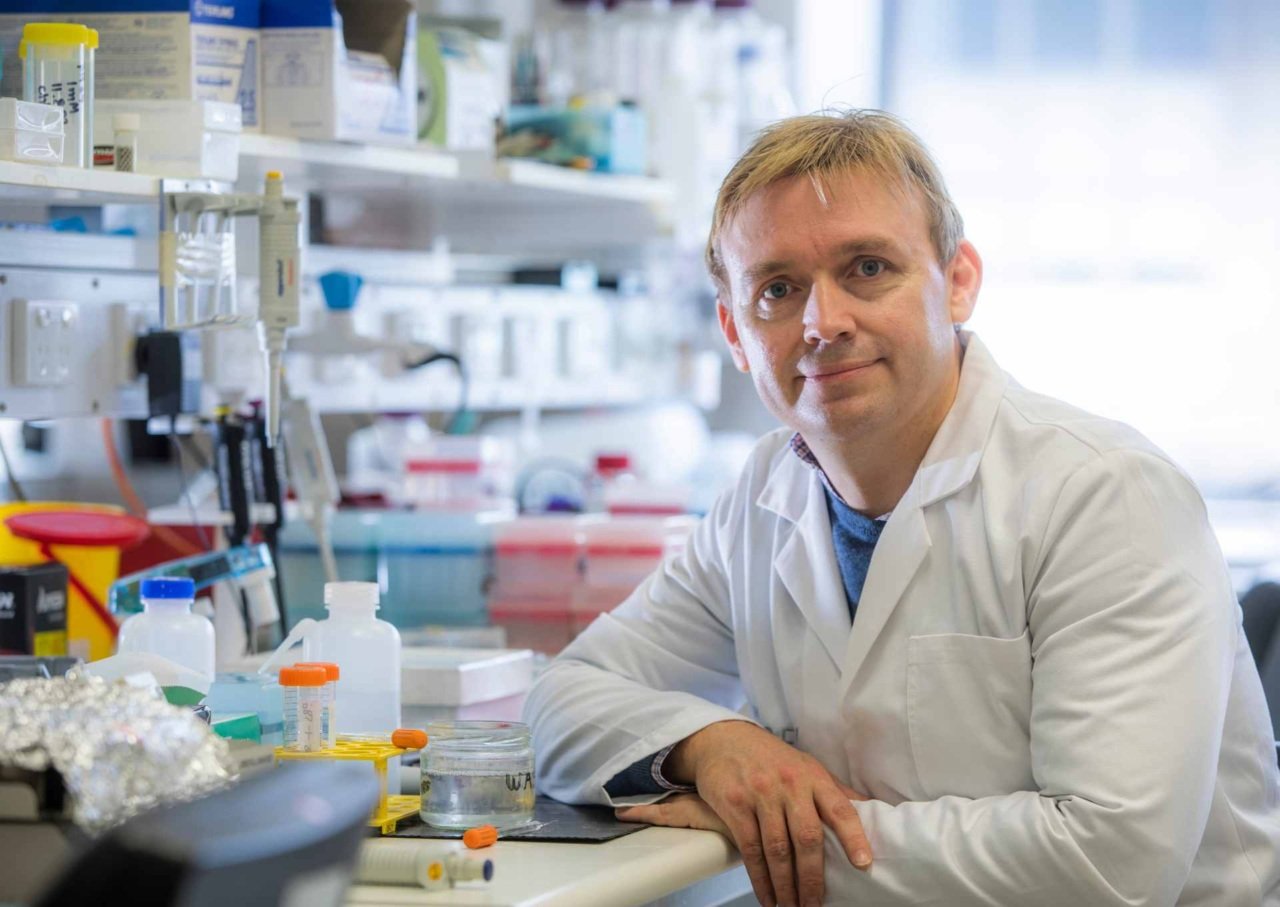
Professor Brad Turner will lead a team focused on the cell death mechanisms implicated in amyotrophic lateral sclerosis (ALS), the most common form of motor neuron disease (MND).
“Our group has been at the forefront of resolving cell death mechanisms in MND and we have recently discovered a new form of cell death unleashed in ALS called ferroptosis. In this project, we will apply cutting-edge techniques to comprehensively map ferroptosis signaling molecules in MND patients and models. We will also conduct a world-first ‘platform trial’ to screen new and established drugs that slow down ferroptosis, and we’ll do this using preclinical models of MND.”
Imaging and blood biomarkers in a new era for Alzheimer’s disease treatment

Professor Chris Rowe – Clinical Lead of The Florey’s Dementia Mission, Director of Molecular Imaging Research at Austin Health and Director of the Australian Dementia Network – is focused on reducing the prevalence of Alzheimer’s disease.
“Although there have been substantial advances in Alzheimer’s disease in recent years, including the recent FDA approval of the drug lecanemab, gaps remain in our understanding of patient selection, dosage and risk,” Professor Rowe said.
He seeks to address these important questions by using the latest imaging techniques and blood biomarkers in volunteers at all stages of Alzheimer’s and in patients receiving lecanemab who are registered with the Australian Dementia Network.
“Using the new blood tests for earlier detection of AD and optimally applying the new disease modifying treatments, we can reduce the prevalence of dementia in Australia”, Professor Rowe said.
Utilising human stem cells to develop advanced therapies for brain repair

Professor Clare Parish will use her expertise in neural grafting to conduct preclinical testing of a human pluripotent stem cell line to enable a Phase I clinical trial of neural grafting in stroke patients. She will also develop new technologies to enhance safety, predictability and function of grafts, and develop advanced models of neurological diseases for research and to improve screening and testing of current and emerging treatments.
“With a rapidly ageing population, neurological conditions are anticipated to rise three-fold in Australia in the next 20 years – yet treatments are limited. My vision for the next five years is to advance the use of stem cells to promote neural repair through transplantation. In parallel I’ll establish superior models of human neurological disease to better test potential treatments,” Professor Parish said.
Decoding the brain: the function and dysfunction of cortical neurons
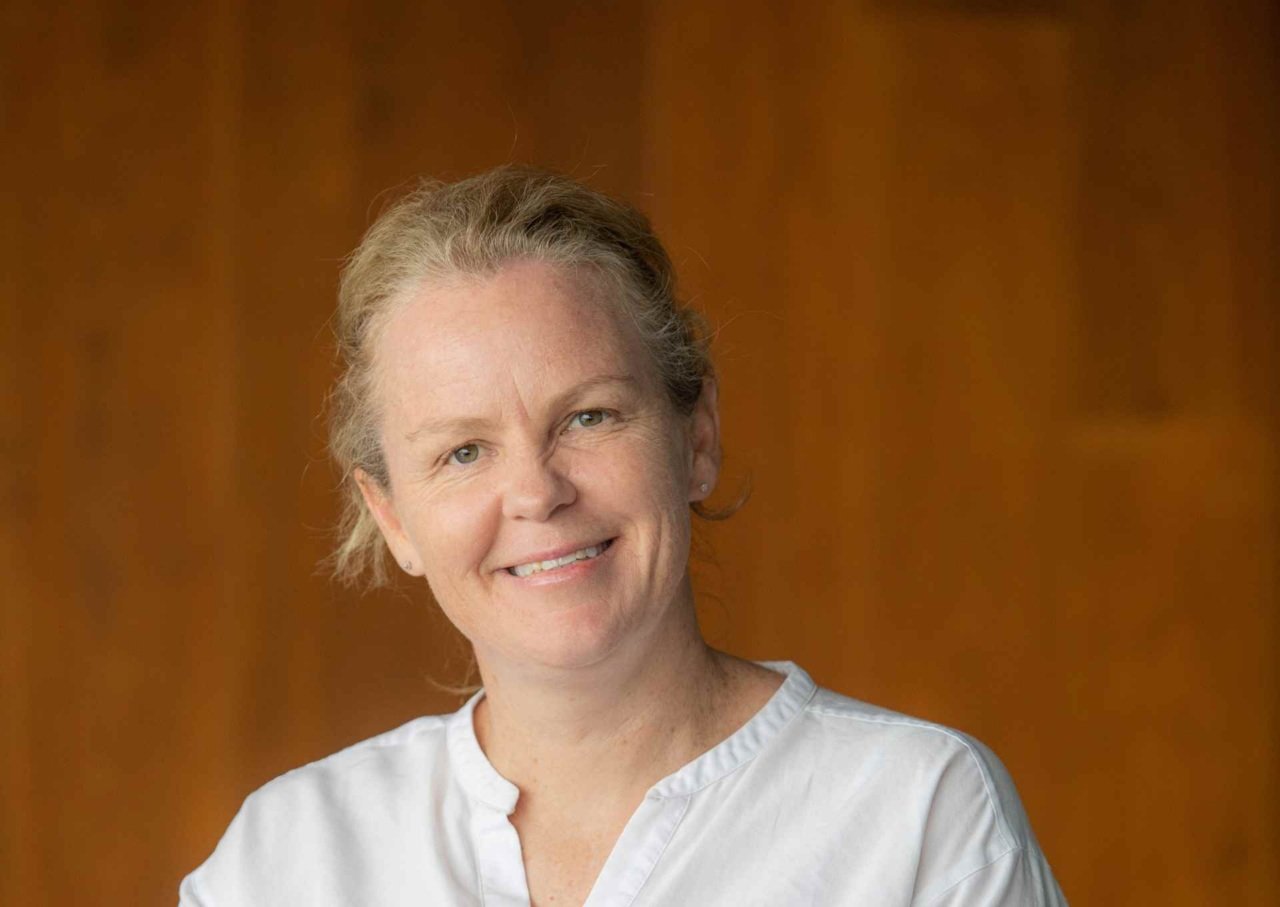
Professor Lucy Palmer will shed light on the functional role of cortical neurons in learnt behaviour and memory storage. As part of the project, she will investigate how neurons are fundamentally altered by brain cancer.
“Understanding the cortex, and what makes it tick, is crucial to the development of new and targeted therapies for neurological diseases where cortical function is disrupted,” Professor Palmer said.
“Although we know the cortex is crucial to many important brain functions, we are just at the tip of the iceberg in understanding the importance of the cortex in complex brain functions.”
Uncovering the neural underpinnings of maladaptive decision making in mental disorders

Associate Professor Jess Nithianantharajah, co-lead of the Mental Health Mission at The Florey, will lead a team to study changes in the balance of neural activity in the prefrontal cortex underlying cognitive behaviour.
“We intend to identify biobehavioural markers of cognitive deficits integrating advanced neuroimaging and behavioural tools in preclinical models. These findings will help accelerate the development of next-generation therapies for schizophrenia and related mental health conditions,” Associate Professor Nithianantharajah said.
She said the mental ability to plan and adapt behaviour and to respond appropriately to constant changes in our environment relies on flexible decision making and learning. For individuals with conditions like schizophrenia, this fundamental ability is impacted.
“We currently lack effective treatments that alleviate cognitive symptoms in schizophrenia and related mental health conditions. To address this, we must better understand the neural changes that contribute to cognitive deficits, which is what our project aims to do.”
Accelerating the pathway to new drugs

Associate Professor Snezana Maljevic, Group Head of The Florey’s Epilepsy Functional Genomics Group, will lead a team of researchers that aims to speed up the development of antisense oligonucleotides (ASOs) therapies for different neurological conditions.
“ASOs are synthesised molecules that can bind to mRNA and modulate levels of gene expression. This technology has shown great promise for the treatment of a range of diseases such as spinal muscular atrophy and Duchenne muscular dystrophy already approved for use in patients,” Associate Professor Maljevic said.
The team will explore alternative and faster ways of assessing the efficacy of ASOs.
“The outcomes of this project will facilitate, advance and shorten the time it takes to develop ASO therapies for different neurological conditions.”
Exploring new therapies to reduce brain and kidney injury caused by sepsis and heart surgery

Associate Professor Lankadeva, Group Head of The Florey’s Translational Cardiovascular and Renal Research Group will work to reveal the physiological and immunological benefits of sodium ascorbate for sepsis and intracellular zinc delivery drugs for cardiopulmonary bypass.
“I’ll be researching how sodium ascorbate, a pH-balanced intravenous formulation of vitamin C, can reduce brain and kidney disease arising from sepsis in preclinical studies and clinical trials. I’ll also be looking at how an intravenous formulation of an intracellular zinc delivery candidate drug can mitigate acute brain and kidney injury following cardiopulmonary bypass in preclinical studies and clinical trials,” Associate Professor Lankadeva said.
Associate Professor Lankadeva aims to build a national collaboration between researchers beyond the life of his five-year program resulting in new treatments and improved health outcomes.
Metabolic underpinnings of susceptibility to adverse childhood experiences

Professor Anthony Hannan, co-lead of the Mental Health Mission at The Florey, leads a team that will investigate the cellular mechanisms linking adverse childhood experiences with mental and physical disorders in adulthood.
“There’s growing understanding that many adult-onset mental conditions, such as such as schizophrenia, depression and anxiety disorders, are linked to adverse childhood and adolescent experiences. Metabolic disorders also appear to be closely linked to adverse childhood experiences,” Professor Hannan said.
“The effects of adverse childhood experiences can be felt across generations. For example, the descendants of people exposed to famine and trauma during childhood have experienced their own behavioural and metabolic symptoms.”
Professor Hannan said it remains unclear which cells and molecular cascades in the brain underlie the long-term effects of adverse childhood conditions.
“Through this project, and collaboration with outstanding European colleagues, we aim to find out whether microglia, the brain cells that repair damage, hold the answer to why people who have had adverse childhood experiences can develop mental disorders.”
* NEURON was established under the Network of European Funding for Neuroscience Research (ERA-NET) scheme of the European Commission. The ERA-NET NEURON aims to coordinate and optimise research efforts and funding programs of its partner countries in the field of mental, neurological, and sensory disorders.
Achieving personalised medicine for people with Alzheimer’s disease

Florey Senior Research Fellow, Dr Liang Jin, will lead a team that will study the different ways different people with Alzheimer’s disease respond to medication.
Alzheimer’s disease has traditionally been considered a condition that affects only the brain.
“Our recent studies show drugs interact differently in different individuals and that this can lead to underdosing, overdosing, and adverse drug reactions which in turn contributes to hospitalisation, additional drugs being prescribed, and worsening cognitive decline,” Dr Jin said.
The team will use data from the Australian Imaging, Biomarker & Lifestyle Study (AIBL), to establish an association between medications exposure and the severity of Alzheimer’s disease.
“The results will tell us whether the metabolism of drugs is different in people with Alzheimer’s and whether the alterations are related to different disease stages. Our ultimate goal is to advance personalised medication use for people with Alzheimer’s disease,” Dr Jin said.
